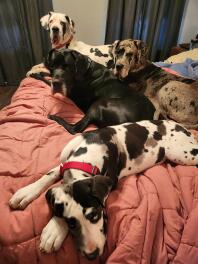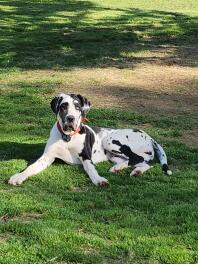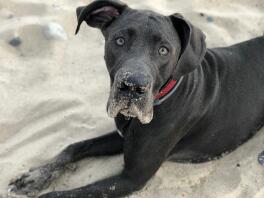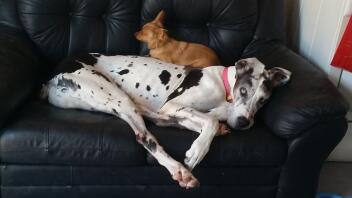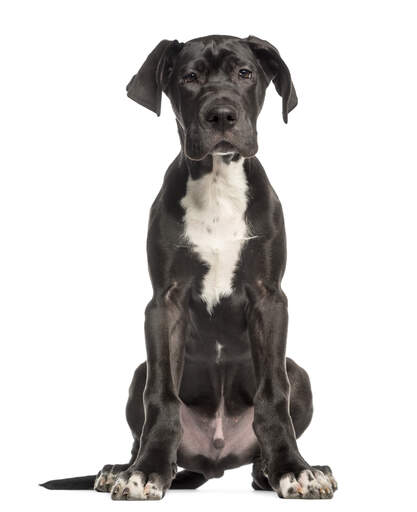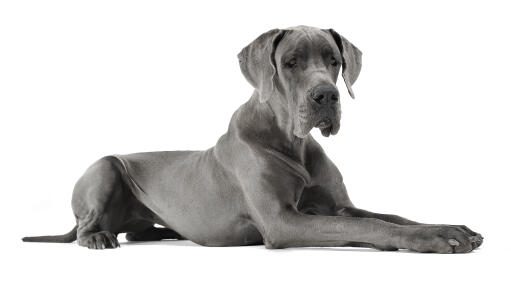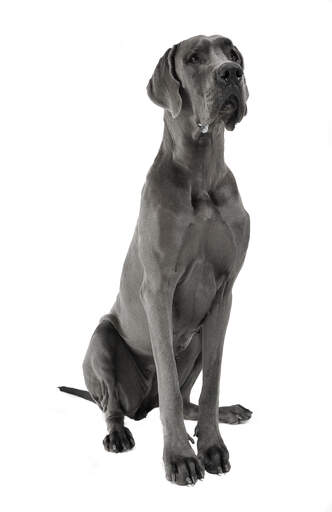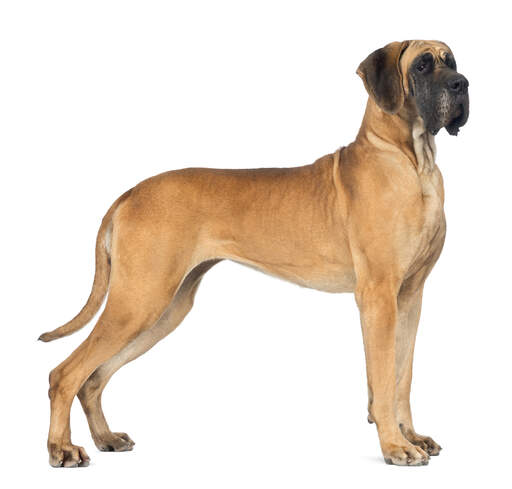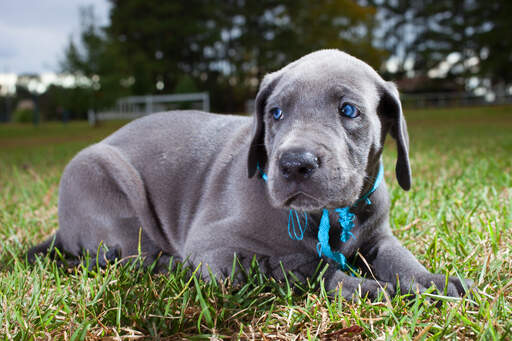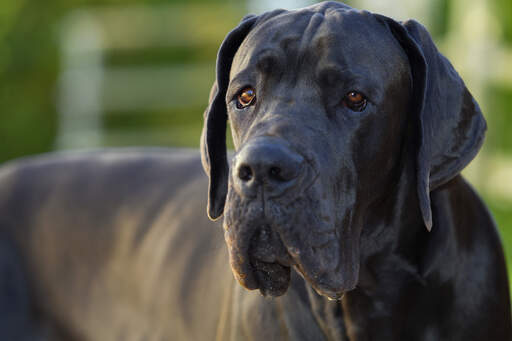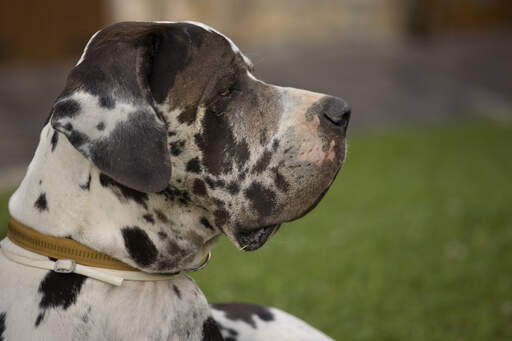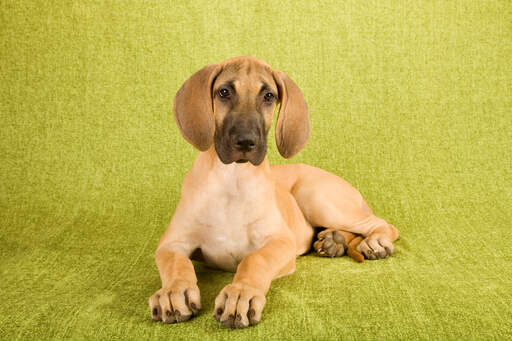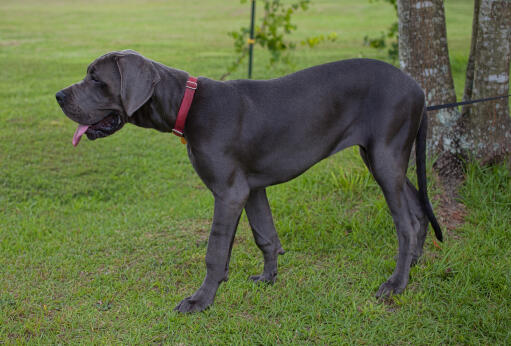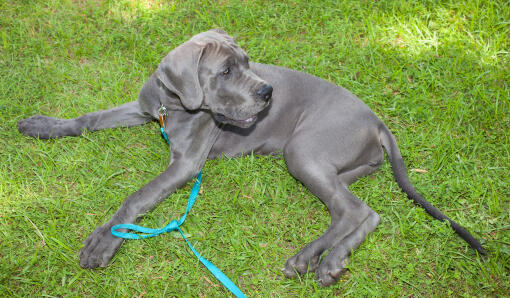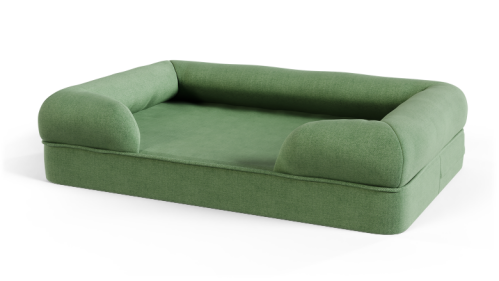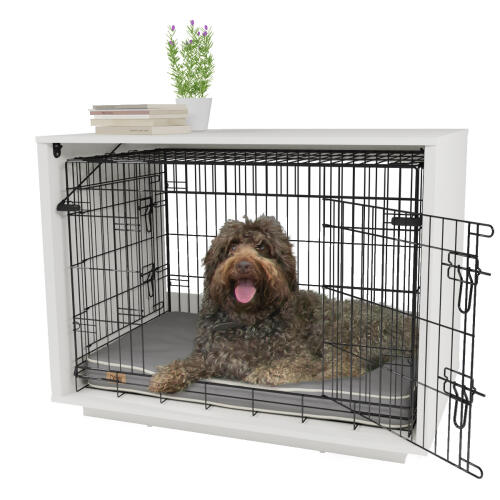Granddanois hund










History
The Great Dane originates from Germany where it was used in WIld Boar hunting. This powerful breed was able to chase and bring down the aggressive Boar and was popular with landed gentry as a capable hunter. The British called them 'German Boarhounds', the name Great Dane is a mystery as they have no links to Denmark. In Germany they are still referred to as 'Deutsche Dogge' or 'German Mastiffs'.
Behaviour
One of the tallest breeds of dogs, the Great Dane holds the record at 44" at the shoulder (2014). They are a regal looking, friendly and dependable breed who love human contact. Being big softies at heart, they often forget just how big they are. They will want to climb onto your lap and cuddle up for a sleep even though they really need their own sofa. Often called gentle giants, they fit well into family life and are gentle, loving dogs. Good with children, but they sometimes forget their size and can knock a small child over by accident. Their height allows them to access kitchen worktops, so everything food related needs to be put away. They do respond well to training and often compete in competitions. They are peaceful and content within a home, making them a great addition to a larger house.
For such a large dog, Great Danes only need moderate exercise. Their massive frame means that they have a slow metabolism, resulting in lower energy levels. A leisurely walk will be fine for this breed as long as you are there to pay attention to them; they'll be happy. As young Great Danes grow very quickly, it is important to limit walks to prevent bone/joint problems. They can suffer from Bloat, so early recognition is advisable to get them treated immediately. Great Danes have very short fur, so require only occasional grooming.
Temperament
Great Danes possess a gentle and loving temperament. They are easygoing and normally get on fine with other dogs or pets in the household. There big size means they sometimes don't know their own strength and may be a bit clumsy.
Wanting to be in the centre of the family you will have a hard time keeping a Great Dane off your sofa and cuddling up to you. These gentle giants will be devoted to their family and some individuals will make exceptional guard dogs.
Health Problems
Health problems that may affect Great Danes inlcude canine hip dysplasia (CHD), elbow dysplasia, bloat, heart problems and bone cancer.
Breed Details
- Status: Common
- Life Expectancy: 6 - 8 years
- Weight: 45 - 91 kg
- Højde: Most are over 32"
- Rare: Nej
- Coat: Lavt
- Grooming Requirements: Once a week
- Town or Country: Either
- Minimum Home Size: Large House
- Minimum Garden Size: Large Garden
- Breed Type: Guard Dog
- Størrelse: Giant
- Energy Level: Medium
- Exercise Required: Over 2 hours
Billeder af Great Dane
